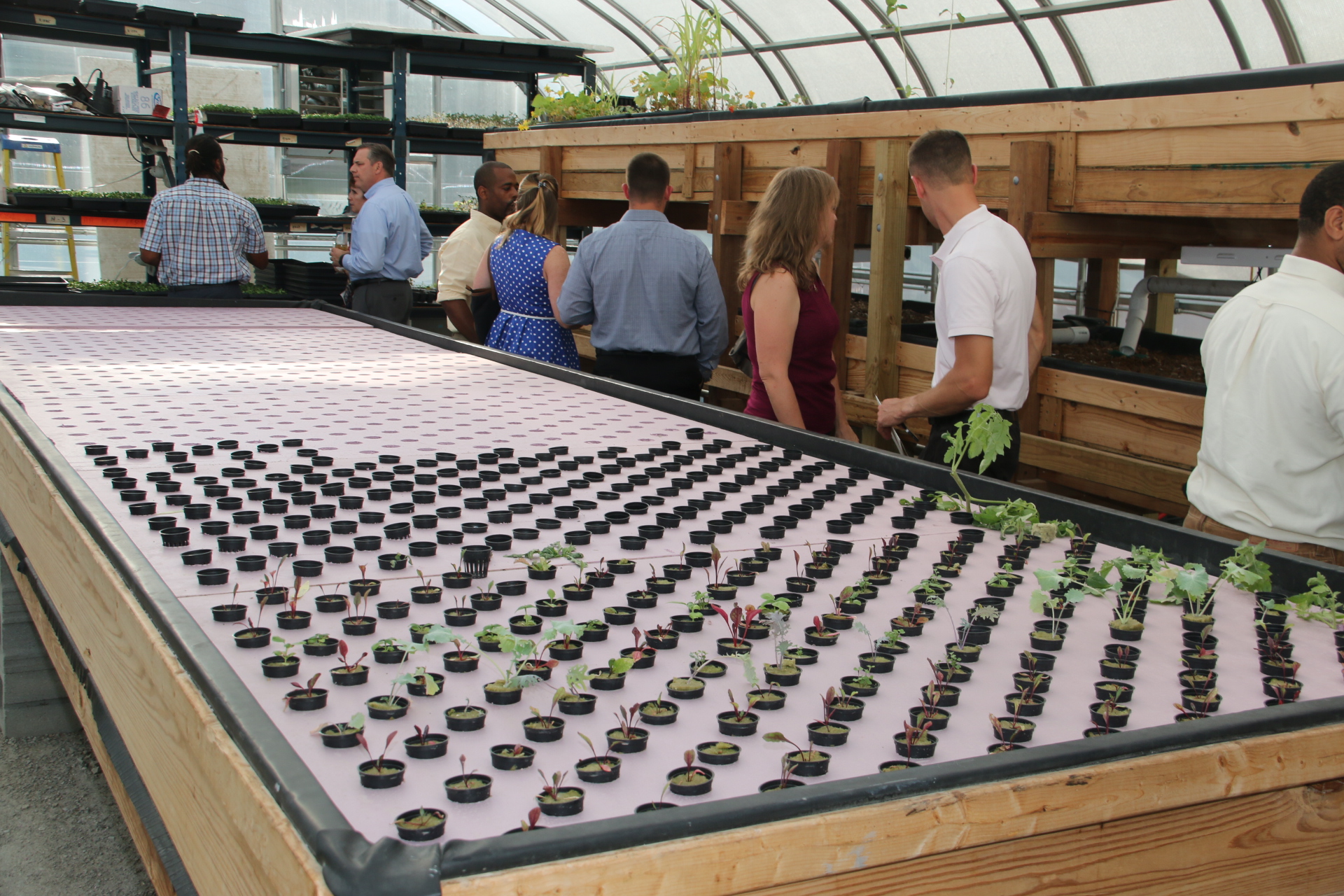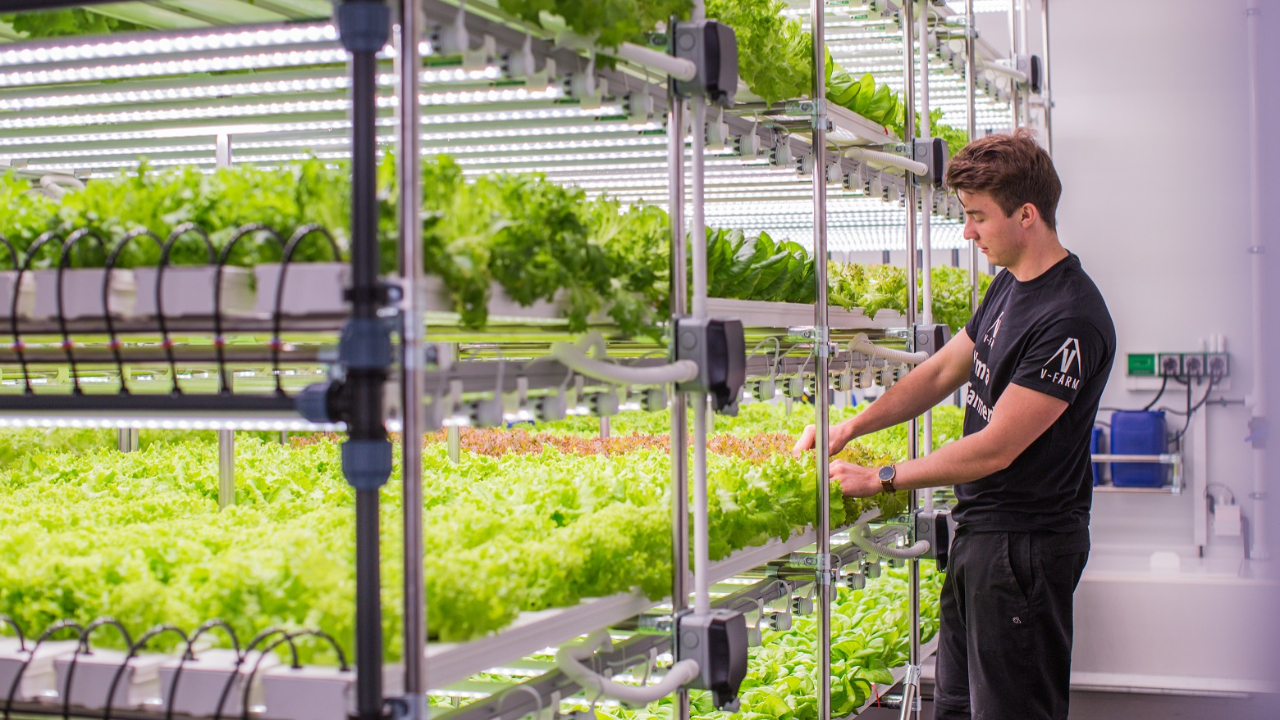Hydroponics glasgow – Welcome to the fascinating world of hydroponics in Glasgow! This guide will provide you with an in-depth understanding of the various hydroponic systems, growing techniques, plant selection, challenges, and the economic and environmental benefits of this innovative method of cultivation.
Embark on this journey and discover the secrets to thriving hydroponic gardens in the heart of Glasgow.
Hydroponics, the practice of growing plants in nutrient-rich water solutions, has gained immense popularity in Glasgow due to its numerous advantages. It offers a controlled environment, allowing growers to optimize plant growth, increase yields, and reduce water and nutrient consumption.
Whether you’re a seasoned gardener or just starting your hydroponic adventure, this guide will equip you with the knowledge and insights you need to succeed.
Hydroponic Systems in Glasgow
Hydroponic systems are a form of soilless gardening that uses water and nutrients to grow plants. They are becoming increasingly popular in Glasgow due to the city’s limited space and high demand for fresh produce.
There are many different types of hydroponic systems, each with its own advantages and disadvantages. The most common types of hydroponic systems used in Glasgow are:
- Nutrient Film Technique (NFT): NFT systems are a type of hydroponic system that uses a thin film of nutrient-rich water to flow over the roots of plants. NFT systems are relatively inexpensive to set up and maintain, and they can be used to grow a wide variety of plants.
- Deep Water Culture (DWC): DWC systems are a type of hydroponic system that uses a deep reservoir of nutrient-rich water to grow plants. DWC systems are simple to set up and maintain, and they can be used to grow a wide variety of plants.
However, DWC systems can be more expensive to set up than NFT systems.
- Aeroponics: Aeroponic systems are a type of hydroponic system that uses a mist of nutrient-rich water to grow plants. Aeroponic systems are more expensive to set up and maintain than NFT and DWC systems, but they can be used to grow a wider variety of plants.
The choice of which hydroponic system to use will depend on the specific needs of the grower. Some factors to consider include the type of plants being grown, the available space, and the budget.
There are many successful hydroponic systems in Glasgow. Some of the most notable include:
- Vertical Harvest: Vertical Harvest is a commercial hydroponic farm that grows a variety of leafy greens and herbs. Vertical Harvest’s systems are located in a vertical warehouse, which allows them to grow more plants in a smaller space.
- Urban Greens: Urban Greens is a community-supported agriculture (CSA) that grows a variety of fruits and vegetables using hydroponics. Urban Greens’ systems are located in a greenhouse, which allows them to grow plants year-round.
- Growing Underground: Growing Underground is a commercial hydroponic farm that grows a variety of mushrooms. Growing Underground’s systems are located in a former air-raid shelter, which provides the mushrooms with a dark and humid environment.
These are just a few examples of the many successful hydroponic systems in Glasgow. Hydroponics is a rapidly growing industry in the city, and it is likely to continue to play a major role in the city’s food production in the years to come.
Growing Techniques and Practices

Hydroponic growers in Glasgow employ various techniques and practices to optimize plant growth and yield. These include:
Nutrient Management
Proper nutrient management is crucial for healthy plant growth. Hydroponic systems deliver nutrients directly to plant roots, allowing for precise control over the nutrient solution’s composition. Growers monitor nutrient levels regularly, adjusting them as needed to meet the specific requirements of each crop.
pH Control
Maintaining the pH level of the nutrient solution within an optimal range is essential. Most plants thrive in a pH range of 5.5 to 6.5. Deviations from this range can affect nutrient uptake and plant health.
Lighting
Artificial lighting is often used in hydroponic systems to provide plants with the necessary light for photosynthesis. The type and intensity of lighting can influence plant growth, flowering, and yield. Growers carefully select and adjust lighting systems to optimize plant performance.
Tips and Tricks for Optimizing Plant Growth
- Use high-quality growing media that provides good drainage and aeration.
- Monitor water temperature and maintain it within an optimal range.
- Provide adequate air circulation to prevent root rot and other diseases.
- Use a reliable water source and filter it regularly to remove impurities.
- Keep the hydroponic system clean and disinfected to prevent the spread of pathogens.
Plant Selection and Varieties: Hydroponics Glasgow

Selecting the right plant varieties is crucial for successful hydroponic cultivation in Glasgow. Consider factors such as climate, available space, and nutritional needs.
Glasgow’s temperate climate and ample sunlight favor various plant species. Focus on selecting varieties that thrive in these conditions.
Recommended Plant Varieties
The following table provides a list of recommended plant varieties for hydroponic cultivation in Glasgow:
| Plant | Variety | Benefits |
|---|---|---|
| Lettuce | Green Cos, Red Romaine, Butterhead | Fast-growing, high yield, nutrient-rich |
| Spinach | Savoy, Bloomsdale | Tolerates cooler temperatures, rich in vitamins |
| Tomatoes | Cherry, Roma, Beefsteak | High-yielding, flavorful, versatile |
| Cucumbers | Mini, Persian, English | Space-efficient, crisp and refreshing |
| Herbs | Basil, Mint, Oregano | Enhance flavor, easy to grow, medicinal uses |
Challenges and Solutions

Hydroponic growers in Glasgow face various challenges, including:
- Water quality:Glasgow’s tap water can be high in calcium and magnesium, which can clog hydroponic systems.
- Nutrient management:Hydroponic systems require precise nutrient management to ensure optimal plant growth.
- Lighting:Glasgow’s limited sunlight during winter months can affect plant growth.
- Pests and diseases:Hydroponic systems can be susceptible to pests and diseases if not properly managed.
Solutions and Best Practices
To overcome these challenges, hydroponic growers in Glasgow can adopt the following solutions and best practices:
- Water filtration:Using a water filtration system can remove impurities and excess minerals from tap water.
- Nutrient monitoring:Regularly monitoring nutrient levels and adjusting them as needed ensures optimal plant growth.
- Supplemental lighting:Providing artificial lighting during winter months can supplement natural sunlight and promote plant growth.
- Integrated pest management:Implementing an integrated pest management program can help prevent and control pests and diseases.
Case Study
A successful example of problem-solving in hydroponics is the use of a recirculating nutrient film technique (NFT) system in Glasgow. This system continuously circulates nutrient-rich water over the roots of plants, providing them with optimal access to nutrients and water.
The NFT system has proven to be highly effective in producing high-quality crops in Glasgow’s challenging growing conditions.
Economic and Environmental Impact

Hydroponics in Glasgow has significant economic and environmental benefits. Let’s explore these advantages and compare hydroponics to traditional soil-based agriculture.
Economic Benefits
- Increased crop yield:Hydroponic systems provide a controlled environment, allowing for optimal growth conditions. This leads to higher crop yields compared to soil-based agriculture.
- Year-round production:Hydroponics allows for growing crops indoors,不受季节性限制. This enables farmers to produce crops throughout the year, meeting the demand for fresh produce.
- Reduced labor costs:Automated systems and controlled environments in hydroponics minimize the need for manual labor, reducing production costs.
- Premium pricing:Hydroponically grown crops are often perceived as higher quality and fresher, commanding premium prices in the market.
Environmental Benefits
- Water conservation:Hydroponic systems use up to 90% less water than traditional soil-based agriculture. This is a crucial advantage in regions facing water scarcity.
- Reduced fertilizer use:Hydroponic systems deliver nutrients directly to plant roots, minimizing fertilizer runoff and potential water pollution.
- Vertical farming:Hydroponics enables vertical farming, allowing for crop production in urban areas with limited land space.
- Reduced pesticide use:Controlled environments in hydroponics reduce the need for pesticides, promoting sustainable farming practices.
Comparison to Traditional Soil-Based Agriculture, Hydroponics glasgow
Compared to traditional soil-based agriculture, hydroponics offers advantages in resource efficiency and environmental impact:
- Water usage:Hydroponics uses significantly less water than soil-based agriculture.
- Fertilizer efficiency:Hydroponics delivers nutrients directly to plant roots, reducing fertilizer waste and environmental pollution.
- Land use:Vertical farming in hydroponics maximizes crop production in limited spaces, unlike soil-based agriculture, which requires extensive land.
- Environmental impact:Hydroponics reduces pesticide use, water pollution, and greenhouse gas emissions compared to soil-based agriculture.
Community Involvement and Education
Community involvement plays a crucial role in promoting hydroponics in Glasgow. Local initiatives and educational programs engage aspiring growers, foster knowledge sharing, and raise awareness about the benefits of hydroponic cultivation.
If you’re interested in hydroponics in Glasgow, you might also be interested in learning about aquaponics fish species . This is a sustainable farming technique that combines hydroponics with aquaculture, allowing you to grow plants and raise fish in a single system.
This can be a great way to save space and resources, and it can also be a lot of fun. To learn more about hydroponics in Glasgow, visit our website.
Educational Initiatives and Resources
Glasgow offers a range of educational opportunities for hydroponic enthusiasts. The Glasgow Hydroponics Club provides workshops, demonstrations, and access to resources for both beginners and experienced growers. The University of Glasgow and Glasgow Caledonian University offer courses and research programs in hydroponic technology.
Success Stories and Testimonials
The success stories of hydroponic growers in Glasgow inspire and motivate aspiring enthusiasts. Testimonials from individuals like [Name], who have successfully implemented hydroponic systems in their homes or businesses, highlight the potential of this cultivation method in the region.
Closing Notes

As you delve into the world of hydroponics glasgow, you will uncover a wealth of opportunities to connect with a vibrant community of growers, access educational resources, and witness firsthand the transformative power of this sustainable and innovative approach to agriculture.
Embrace the challenges, experiment with different techniques, and share your knowledge with others. The future of hydroponics in Glasgow is bright, and you are invited to be a part of this exciting journey.
Question & Answer Hub
What are the different types of hydroponic systems used in Glasgow?
There are various hydroponic systems employed in Glasgow, including Nutrient Film Technique (NFT), Deep Water Culture (DWC), Ebb and Flow, and Aeroponics. Each system has its own advantages and disadvantages, and the choice depends on factors such as plant type, space availability, and budget.
What are the key factors to consider when selecting plants for hydroponics?
When choosing plants for hydroponic cultivation, it’s important to consider factors such as plant size, growth rate, nutrient requirements, and compatibility with other plants. Some popular choices for hydroponics in Glasgow include leafy greens (e.g., lettuce, spinach), herbs (e.g., basil, mint), and fruiting plants (e.g.,
tomatoes, cucumbers).
What are the common challenges faced by hydroponic growers in Glasgow?
Hydroponic growers in Glasgow may encounter challenges such as nutrient deficiencies, pH imbalances, pests, and diseases. However, by implementing proper monitoring and maintenance practices, these challenges can be effectively managed.
What are the economic benefits of hydroponics in Glasgow?
Hydroponics offers economic benefits such as increased crop yields, reduced water and nutrient consumption, and the ability to grow crops year-round in controlled environments. This can lead to increased profitability and sustainability for growers.
What are the environmental benefits of hydroponic systems?
Hydroponic systems conserve water and nutrients compared to traditional soil-based agriculture. They also reduce the need for pesticides and herbicides, making them a more environmentally friendly option.
